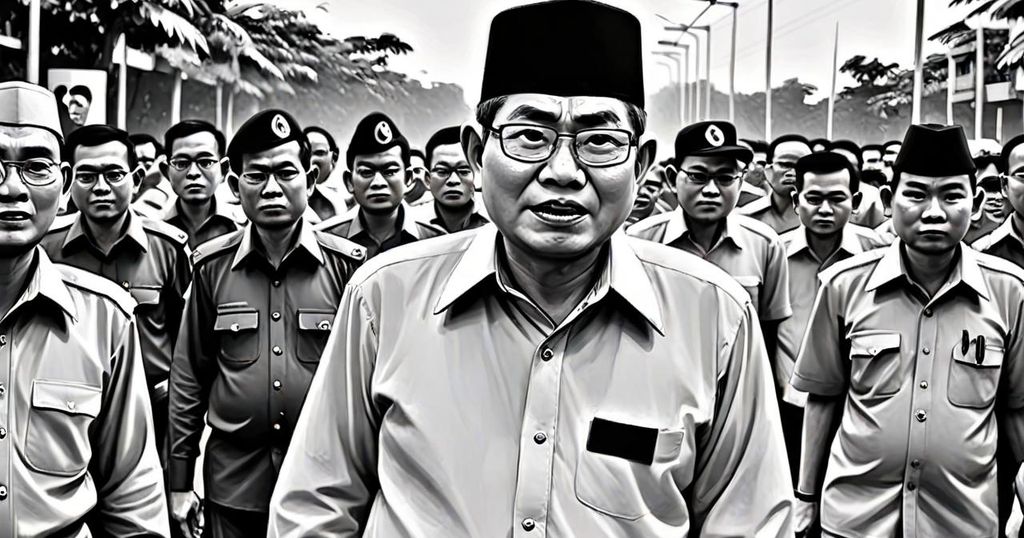In less than a month, Indonesia, the world’s third-largest democratic country, will undertake the process of electing its new leader. The frontrunner for this position is the 72-year-old Prabowo Subianto, the current Defense Minister and a figure with a contentious history. Once feared by many due to alleged involvement in human rights abuses and disappearances, he has successfully rebranded himself as a more approachable figure and is gaining popularity among younger voters.
Prabowo’s political opponent is the well-liked Joko Widodo, also known as Jokowi, who has held the position of the nation’s president for two successive terms. The upcoming election on 14 February is witnessing a significant attraction of young voters towards Prabowo’s promises of stability and economic development, in a bid to follow Jokowi.
Prabowo’s younger rivals, Ganjar Pranowo and Anies Baswedan, both in their 50s, highlight their experience as governors and concentrate on job security, infrastructure, and Indonesia’s role in international relations. Nevertheless, Prabowo’s current lead in the polls indicates a genuine possibility of him assuming the presidential seat.
Notably, Prabowo’s running mate is Jokowi’s eldest son, Gibran Rakabuming Raka. This choice has garnered attention as it is seen as an endorsement from the current president, who has not yet officially supported any candidate, including one from his own political party.
However, apprehensions loom large about Prabowo’s candidacy. Many Indonesians are concerned that his ascension to the presidency would mean a dismissal of his alleged involvement in the abduction and killing of pro-democracy activists. Conversely, his supporters view him as a potential leader with promising plans for the renewable energy and farming sectors.
Prabowo’s unorthodox campaign methods have also captivated the attention of the youth, who make up the majority of eligible voters in Indonesia. Social media has been his primary platform, with substantial investment in advertising on platforms such as Facebook and TikTok.
The rebranding of Prabowo’s image as a “gemoy” figure, characterized by cuteness and approachability, has effectively softened his once-intimidating persona. His pet cat, Bobby, even has its own Instagram account and serves as a symbol of his relatable and likeable nature.
The younger generation, who did not experience Prabowo’s controversial past firsthand, seem more focused on his plans for the future, particularly his commitment to creating jobs and addressing the cost of living. Despite allegations of his involvement in past atrocities, Prabowo’s campaign has refuted them and emphasized the need to move forward and focus on present issues.
Nevertheless, his critics remain strong in their reservations, noting that his presidential nomination would be a significant setback for human rights and justice. The revival of Prabowo’s public image, supported by his alliance with Jokowi and the strategic support of state machineries, is a cause for concern among those who foresee a potential resurgence of his controversial traits.
As the 14 February election date approaches, Indonesia stands at a crucial juncture in its political landscape. The rebranding of Prabowo as a “cuddly grandpa” has certainly sparked intrigue and divided opinions, but only time will tell whether this polarizing figure will lead the nation into a new era.

Leave a Reply